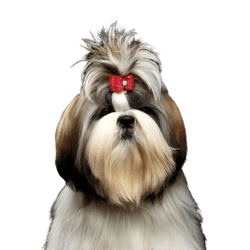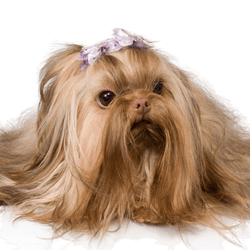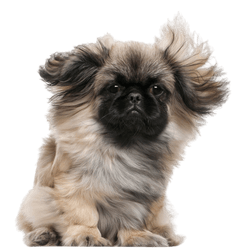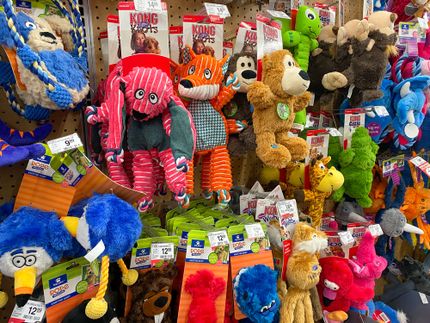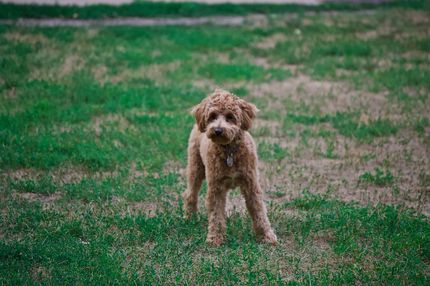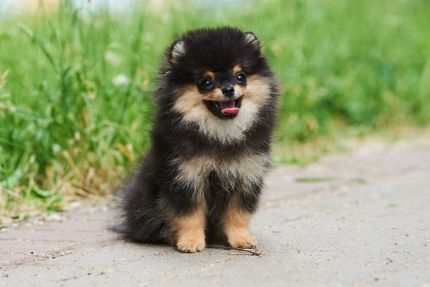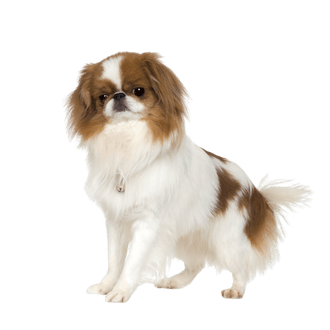
Japanese Chin Breed description: Character & Co
Japanese Chin
Facts & Origin
Each dog breed has different characteristics and requirements. For this reason, it is important that you inform yourself beforehand if you want to buy a Japanese Chin.
What are the breed characteristics of a Japanese Chin?
Because a Japanese Chin puppy is born with a very short muzzle, breathing problems are common in this breed. The fine coat of this breed requires intensive grooming. To keep it beautiful and supple, you should brush your dog daily. The Japanese Chin belongs to FCI Group 9: Companion Dogs, Section 8: Japanese Spaniels and Pekingese. Allergy sufferers should rather use other dog breeds.
What is the origin of the Japanese Chin?
As the name suggests, this breed originated in Japan. There, the first ancestor is said to have lived at the royal court. Since the dog was so popular there, more specimens were bred in Japan. In 1613 the first Japanese Chin came to Europe. But it was not until 1815 that he gained his reputation as a popular domestic dog.

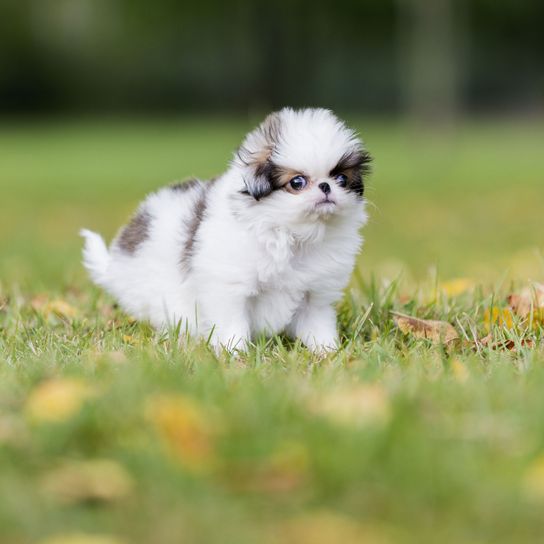
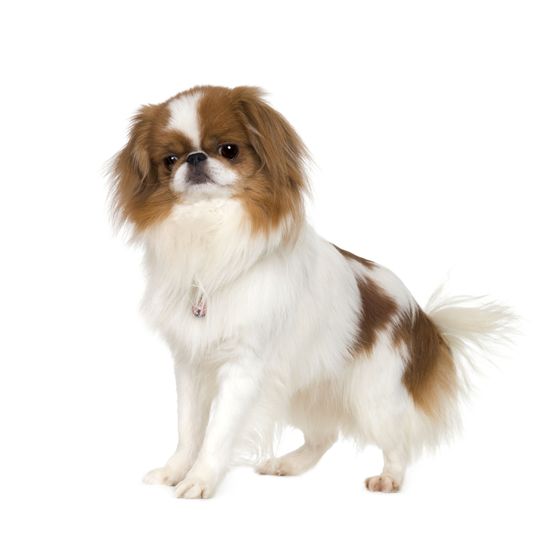
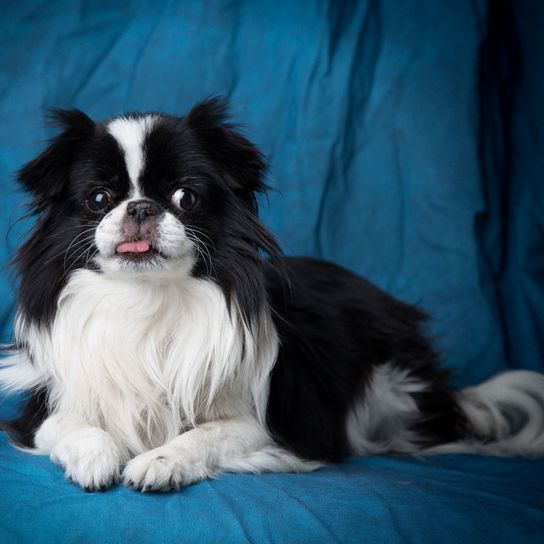
| Alternate Name | Chin |
| Origin | Japan |
| Life expectancy | 12 - 14 years |
| Care requirements | high-maintenance |
| Activity level | low |
| FCI group | Japan Chin and Pekingese |
| AKC group | not recognised |
| KC group | not recognised |
Japanese Chin mixes
Attitude, character and temperament of the breed
What are typical character traits of the Japanese Chin?
The Japanese Chin is a beautiful family dog, as it likes to cuddle and make himself comfortable on the lap of its owners. Despite its lively and playful nature, it is also content with little exercise. If you're looking to buy a Japanese Chin, be prepared for it to be very prone to separation anxiety. It prefers to stay close to its family.
Training your Japanese Chin will be a lot of fun, as it is very smart and a quick learner. It is also very sensitive and will adjust to your mood. Most owners report that its behavior is more like that of a cat, as the Japan Chin loves to climb, groom himself with its paws, and lie in high places.
Character
Usage

Health and breeding information
Buying a Japanese Chin puppy
If you want to buy a Japanese Chin, you have to be patient, because this breed is very rare. You should therefore avoid buying the first puppy you find on the internet. This could mean that you are supporting animal cruelty. To choose a reputable breeder who takes good care of his animals, you need to take your time and visit it several times. Take a good look at the dogs and the conditions in which they are kept.
This will not only prevent you from supporting a terrible breed. A good breeder will provide you with a healthy animal that does not get sick easily and has all vaccinations. A Japanese Chin puppy from a reputable breeder has a high price (more than 1000 Euro for example). You have to be prepared for that.
What are typical diseases of the Japanese Chin?
Even in a good breeding unfortunately diseases can not be prevented. A Japanese Chin suffers more often than other dog breeds from eye diseases. The clouding of the eye, which can lead to blindness of the dog, is a common disease. In addition, Japanese Chins often suffer from lack of lacrimal fluid, growth of eyelash-like hairs from the sebaceous glands, and misalignment of the eyelashes, which can cause injury to the cornea.


Appearance and coat of the Japanese Chin
With its 20-25 cm the Japanese Chin remains very small. It has a soft and silky coat that gives it an elegant appearance. As a rule the Japanese Chin is
- black-white or
- brown-white.
- It is also possible that he has a tri-colored coat.
Its large protruding eyes and short muzzle give it his cute appearance. It moves very smoothly on his short legs.
| Fur length | long |
| Fur | flat coated |
| Ear shape | Floppy Ear |
| Tail | rolled up |
| Anatomy | slim |
| Size ♀ | 20 - 27 cm |
| Weight ♀ | 1 - 7 kg |
| Size ♂ | 20 - 27 cm |
| Weight ♂ | 1 - 7 kg |
| Suitable For | Beginner, Children, Seniors |
Colors
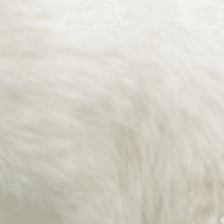

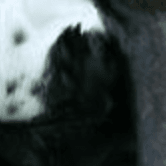
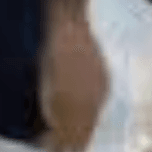
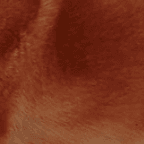
Known Diseases
Eye infections
Chronic eye infections can be very painful in dogs and can be treated with medication. In rare cases, the cornea must be treated.
Eye diseases
Often occur with allergies and intolerances.
Cataract
Cataracts are still one of the most common causes of blindness, even in dogs.
Other small dogs
Useful Articles
You can find articles that might interest you in the dogbible blog to match your favorite breed.
Visit our magazineto stay up to date on dog trends.
To find out more, view our Privacy Policy
Find here the breed that suits you and find out what character traits it has. Here you can also learn more about the origin, size and weight of your favorite breeds.
Matching your favorite breed, you'll find articles that might interest you on the dogbible dog blog.
Tractive experience review - is it worth it?
Hunting dog training: costs, procedure and duration
Designer dogs - These "breeds" are particularly popular and originated from two different breeds











